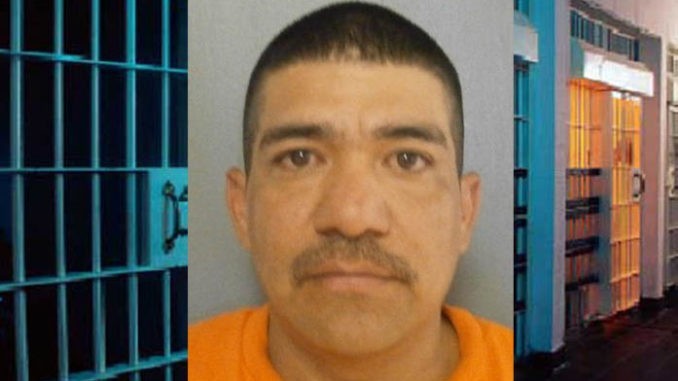
A Tucson man convicted of a 2002 drug deal gone bad during which a passing school bus driver was accidentally shot is entitled to a new trial because a key court record is missing from the case file, the Arizona Court of Appeals ruled last week.
In the court’s Jan. 13 opinion, Juan Ramon Sahagun-Llamas’s conviction for aggravated assault and 13 counts of endangerment was overturned, as was the 7.5-year sentence imposed on those charges. The decision does not impact a 5-year sentence in the same case for two drug offenses.
According to the appellate court, Sahagun-Llamas gets a new trial because the court reporter’s notes from a key day of his 2003 jury trial are unavailable for review to determine if there are grounds for an appeal. Court rules at the time required such documents to be retained for 25 years.
The missing record would have transcribed more than four hours of testimony by two defense witnesses, including a ballistics expert and a friend who went with Sahagun-Llamas to a Tucson car wash in February 2002 to meet someone in connection to a drug deal. The meeting turned violent, with Sahagun-Llamas and his friend being attacked by four men who arrived in a silver-blue vehicle.
Court records show Sahagun-Llamas, who was injured in the attack, told police he fired multiple bullets from a handgun toward the silver-blue vehicle in self-defense. Other witnesses reported that someone inside the same vehicle fired a gun toward the car wash.
At the same time, a school bus carrying 13 young children was driving by. The Pima County Attorney’s Office contended one of Sahagun-Llamas’s bullets struck the bus driver in the elbow and grazed his chest, although police never located the bullet. The defense’s ballistic expert testified there was no proof what gun fired the shot that injured the bus driver.
In May 2003, a jury convicted Sahagun-Llamas of aggravated assault for the bus driver’s injuries and 13 counts of endangerment for the kids on the bus. The defendant, however, wasn’t present to hear the verdict because he absconded mid-trial.
His sentencing didn’t occur until January 2017 -more than 13 years after the trial- when Sahagun-Llamas was arrested on a fugitive warrant. He told authorities he absconded after being intimidated by the men who assaulted him at the car wash.
The missing court reporter notes came to light a few months later when Abigail Jensen of the Pima County Public Defender’s Office reviewed the case for possible appeal. The court reporter failed to turn in her notes from day four of Sahagun-Llamas’s trial, as well as several other cases over a six week period. She died in 2007, according to court records.
The trial judge was ordered to work with the defense and prosecutor “to attempt to reconstruct” the four hours of testimony, evidence, and arguments. The state later filed a two and one-half page “narrative statement” which the trial judge approved over the objection of the defense, calling it “the most complete and most accurate record that can be constructed under the circumstances.”
But the court of appeals found the state’s narrative effort lacked “sufficient completeness” to afford meaningful review for appeal.
“It does not comprehensively record or recall the important details of the testimony actually given,” the opinion reads. “Nor does it record any evidentiary rulings that may have occurred in light of any objections that may have been made.”
In addition to a new trial, Sahagun-Llamas will be able to have the jury receive an instruction on self-defense to the 13 endangerment counts, something the trial judge refused to do in 2003 even though the law at the time allowed for a self-defense instruction if there was “the slightest evidence” it might apply.
Such evidence existed, the court agreed, by the fact Sahagun-Llamas and his friend were assaulted and in witness statements that someone fired toward the car wash from the silver-blue car.
The Arizona Attorney General’s Office has until mid-February to challenge the appellate court opinion to the Arizona Supreme Court. If Sahagun-Llamas is not retried then he is eligible for release on the drug charges in early 2022.
